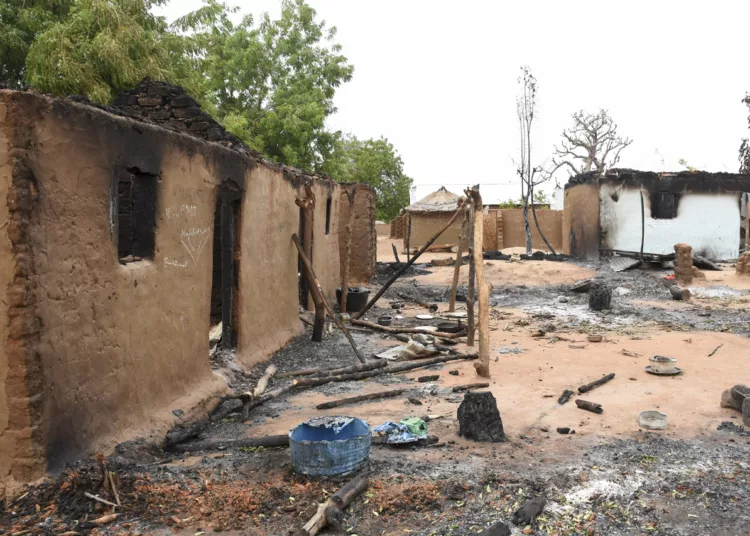In the wake of the massacre of nearly 200 inhabitants of Plateau State during Christmas in well-coordinated attacks that spanned three days, three local government areas of Barkin Ladi, Mangu, and Bokkos, and at least 17 communities, various groups and individuals have called for a thorough investigation of the incident, the arrest and prosecution of the perpetrators and for a lasting solution to be found to avoid this two-decades-long cycle of violence that has sent thousands to an early grave and rendered many poor due to the destruction of their property and livelihoods.
This is not the first time Christmas joy turned into grief in Plateau State. In 2010, on Christmas Eve, the bombing of two communities by terrorists sparked reprisal killings that lasted well into January 2011 and led to the death of 2,000 people, including travelers passing the area.
Plateau State had the reputation of one of the most peaceful states in Nigeria where everyone felt at home, including foreigners from the West who found the cold climate conducive for habitation.
However, all that changed on September 7, 2001 when violence broke out and spread through Jos, the state capital, during which an estimated 1,000 people were killed, thousands others maimed, tens of thousands displaced and property worth billions destroyed in two weeks of clashes.
The 2001 Jos riots were triggered by ethno-religious tensions that had simmered for a while but were left unattended.
Since then there have been cycles of violence with different triggers: politics, religious differences, farmer-herder conflict, banditry and terrorism.
Such recurring killings in the area obviously informed the military intervention in the form of Operation Safe Haven to support the police and other internal security forces in maintaining order in the area.
However, the recent attacks, by the nature of their execution and the extent of their coverage and sophistication of arms deployed show that the underlying issues in the Plateau crises were graver than the security strategies designed to contain them.
Reactions to the attacks by the security forces and revelations by victims of the attacks leave a chilling sense of the absence of accountability and responsibility from those whose duty it is to protect the life and property of Plateau inhabitants.
The excuse by the military that its operatives could not access the rough terrain of the affected communities is unacceptable and laced with lack of tact and abdication of responsibility.
This raises a few pertinent questions: In a two-decades-long conflict, are the commanders of military and police units that have jurisdiction over the areas saying they have not done any strategic planning to secure those places all this while?Does it mean that whenever the marauders want, they can go there and kill the residents at will knowing fully well that the security agencies would not interfere? How did the marauders get there? How do the residents of those areas move and transact with other areas? Are there any inhabited communities that motorcycles, boats and helicopters cannot access in Nigeria? This excuse is not good enough.
Allied to this is that the response time of the security forces to distress calls leaves a lot to be desired. In the case of the recent Plateau attacks, the killing spree went on for three days – from December 23 to December 25 – yet the terrorists were not repelled, nor were any of them killed or arrested.
The military said they responded to 36 distress calls. Fair enough. If
they did, how many of the terrorists did they kill or arrest in the process?
None of such actions were reported. Also, according to reports, the marauders gave forewarning of the attack.
There are police and Directorate of State Services (DSS) formations in every local government area in Nigeria; how come they did not pick up this intelligence – as they should, or act on it if they did? And what did they do when the attacks started in order to lessen the severity of the carnage?
As a newspaper, we align with the National Assembly’s decision to invite the service chiefs, once again, to explain this very costly lapse in national security.
However, this time, the federal lawmakers must ask the hard questions to indict those who dropped the ball on their watch, and apply the necessary stick.
We also join the calls for a very extensive investigation into the Plateau crises. Also, the sophistication of the attackers’ weapons shows a level of funding not affordable to their bearers.
The investigation by both the security agencies and the federal lawmakers must unravel all these so that, first of all, the perpetrators and their sponsors are caught and prosecuted, and secondly, that the right security strategy could be designed to ward off and contain future attacks.
Most importantly, there is now a compelling need to have state and local levels of policing in line with the federal principle.
From the Plateau incident and the failure to contain banditry and kidnapping, it is obvious that the over-centralized policing system we currently operate is inadequate to provide effective and efficient protection of the life and property of ordinary Nigerians.
The Middle Belt Forum and other groups have alleged ethnic cleansing and a plot to displace original inhabitants by land grabbing invaders. This should be carefully examined.
In the meantime, the governors in the zone can copy the Amotekun model from the South West governors when faced by bandits in their forests.
It is encouraging that eight suspects in the attack have been arrested. We hope that through them, the security agencies will unravel the whole purpose of the raids and serve justice to all involved.
We also advocate peace building measures among the various ethnic nationalities and religious groups in the area. The recommendations from previous panels of inquiry into previous cases of violence should be dusted up and applied where applicable towards stopping this recurring cycle of bloodshed.





